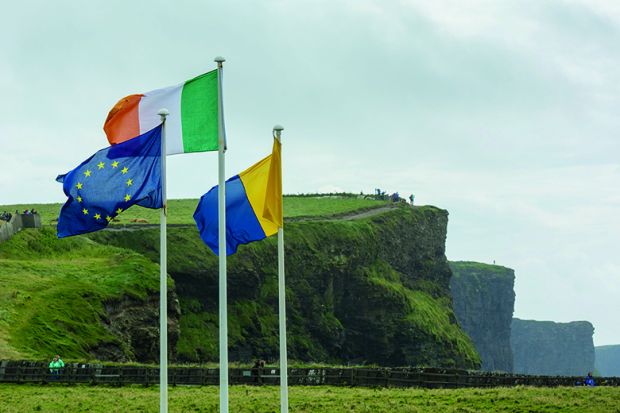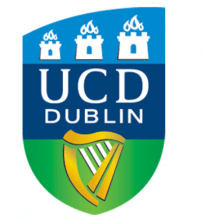Brexit presents Irish universities with risks to vital links that they have to the UK, but the government and some senior figures in the Republic of Ireland also see a potential opportunity to attract outstanding research talent.
Higher education elements of October’s Irish budget included an unspecified level of funding to start “a new initiative to attract world-leading researchers in the context of Brexit”, according to Ireland’s Department of Education and Skills.
Jane Ohlmeyer, chair of the Irish Research Council and Erasmus Smith’s professor of modern history at Trinity College Dublin, stressed “just how sad we are in Ireland about the fact that we may no longer have the opportunity to collaborate with our colleagues in the UK in the context of Europe”.
But she added: “Ireland would be the only English-speaking country left [in the European Union]…I do think that creates an opportunity for Ireland.”
If the UK were to find itself outside EU research programmes post-Brexit, some British-based researchers would seek alternatives to ensure that they could access EU funds. Those in receipt of European Research Council grants, for example, are required to spend 50 per cent of their total working time in an EU member state.
Professor Ohlmeyer said that options that could potentially be considered would be UK-based researchers spending a number of years at an Irish institution during an ERC grant and then returning to their UK university, or “possible joint [academic] appointments” between British and Irish institutions that would allow UK-based researchers to split their time between the two and access EU schemes.
She continued: “We all should be as imaginative and creative as we can to ensure that we maintain as strong collaborative and research relationships with our colleagues in the UK as we possibly can – without poaching, without being predatory about it, because actually that’s not helping anybody.”
Professor Ohlmeyer said that Ireland’s “decade of austerity” has meant that the “pendulum has swung very much towards applied research”.
Ireland needs more “basic, pure, frontier research, which is exactly what the ERC is funding”, she added. If Ireland were able to attract ERC grant winners from the UK, or grant winners from elsewhere wishing to work in an English-speaking nation, there could be benefits for Ireland, she said.
Professor Ohlmeyer said: “Obviously, encouraging people to come not just from the UK but from across the world to become part of our research community can only be a good thing for Ireland.”
Orla Feeley, vice-president for research, innovation and impact at University College Dublin, said: “As with any university, the opportunity to attract in new research talent, the opportunity to perhaps play enhanced roles in [EU-funded research] partnerships, is always going to be attractive to us. But it’s against a context of a strong and lasting relationship with UK universities that we’re not going to relinquish.”
Chris Morash, vice-provost of Trinity College Dublin, said that Ireland’s research system is “heavily intertwined” with that of the UK, whose universities “are our top collaborators”.
He added: “You don’t just walk away from those.”
Professor Morash called the ERC “the big game, it’s where you want to be in terms of research”.
He added: “If I were a researcher right now in the UK, I would be very worried. And I would be trying to find strategies that would involve working with colleagues in countries like Ireland to maintain those links into European research networks.”
Professor Morash called the idea of joint academic appointments between UK and Irish universities “something we should certainly look at”.
POSTSCRIPT:
Print headline: Isle appeal: Ireland courts ‘world-leading’ talent
Register to continue
Why register?
- Registration is free and only takes a moment
- Once registered, you can read 3 articles a month
- Sign up for our newsletter
Subscribe
Or subscribe for unlimited access to:
- Unlimited access to news, views, insights & reviews
- Digital editions
- Digital access to THE’s university and college rankings analysis
Already registered or a current subscriber?












